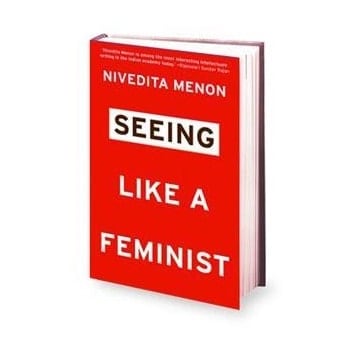Women’s colleges across the globe have had the history of producing some of the smartest, bravest and greatest minds we’ve seen – from Hilary Clinton to Aung Sang Suu Kyi, from Sheila Dikshit to Gita Gopinath – the most brilliant women today credit their successes to their all girl alma maters. So what values do these all women institutions instill in their students that inspire them to achieve greatness? A sense of confidence, a feeling of being comfortable in one’s own skin, breaking stereotypes, understanding that the only person you need to impress is yourself? Ofcourse!
Besides these, the experience of studying a women’s college is like no other – our college life comes with its own set of problems, solutions and sweet nothings. Some funny and some downright crazy, here is a list of ten little things that I’ve learned from my experience in a women’s college:
1) Being a male professor is not easy – Can you imagine the plight of a man aged between 25-50 teaching a class of fifty 19 year old girls? Well, you can’t! Each move he makes is scrutinized, duly noted and discussed after class. God forbid he decides to wear acid wash jeans, mispronounces a word, or says one thing too many times, he can be rest assured to be topic of discussion throughout the day!
2) Pyjamas are completely acceptable college wear – While this may vary from individual to individual and from college to college, most of us couldn’t care less about our attire in college. In the end, it’s all about being comfortable.
3) College fests are a time when all your guy friends will decide you exist – WHAT IS WITH BOYS WANTING TO ENTER GIRLS COLLEGES? I mean, relax guys, we aren’t a species from outer space and our campus is not a UFO! Sure, come in and see what our fest is all about but don’t treat us like exotic birds you’d like to sight at a picnic with your pals.
4) Beauty is not skin deep – Forgot to get your eyebrows done? Or shave your legs? Been too busy to watch your weight? Welcome to no man’s land. As long as you’re a great person and can help a friend in need, we really couldn’t care less!
5) Everybody here is not a feminist – Sure, many of us lean towards gender studies or feminism as a political ideology, and that maybe because of the stark difference in our lives in and outside college, but not everybody claims to be a feminist, per se.
6) Being a feminist and being lesbian are two different things – Many of us have heard this and it’s gets more frustrating each time. Feminism is not a man hating, lesbian loving idea – it’s an idea striving for equality of all genders in every sense, and should not be associated only with women’s colleges.
7) Women aren’t delicate creatures who need to be constantly pampered – There are NO men here – we take our own food to the table, shift around the heavy furniture all by ourselves, travel alone and are well aware that the ‘girls are soft, boys are strong idea’ is stupid and has no place in the 21st century.
8) Men who advocate for gender justice are extremely ‘sexy’ to us – Okay, so to be clear here, there is no battle of the sexes. There are men who are pathetic and misogynist; there are also women who think the same way. When we see someone from the privileged sex with the intellectual capacity to make sense of the war against women and genders other than male – and because it’s not very common – our hearts can’t help but leap with joy!
9) There are no flocks of guys waiting outside the gates of our college – This is a myth buster – there are no boys peeping in from gates and windows, no men trying to sneak in. The only men outside college are the auto vaala bhaiyas, the rickshaw vaala bhaiyas, the bhelpuri/sevpuri bhaiyas and the icecream vaala bhaiyas.
10) College is a real place, not Barbie land – Contrary to what outsiders or aspirants may think, everybody is not incredibly feminine, nor are there catfights, or women making out behind bushes. We go there to study, have fun, and learn about life – and that’s exactly what we do!
College teaches us all of this and more – love it or hate it, you’re going to learn here – both about yourself and about the world, and when you’re learning all of this in a women’s college, your life is going to be all new and very unique roller coaster. All freshers going to women’s colleges – welcome aboard!









